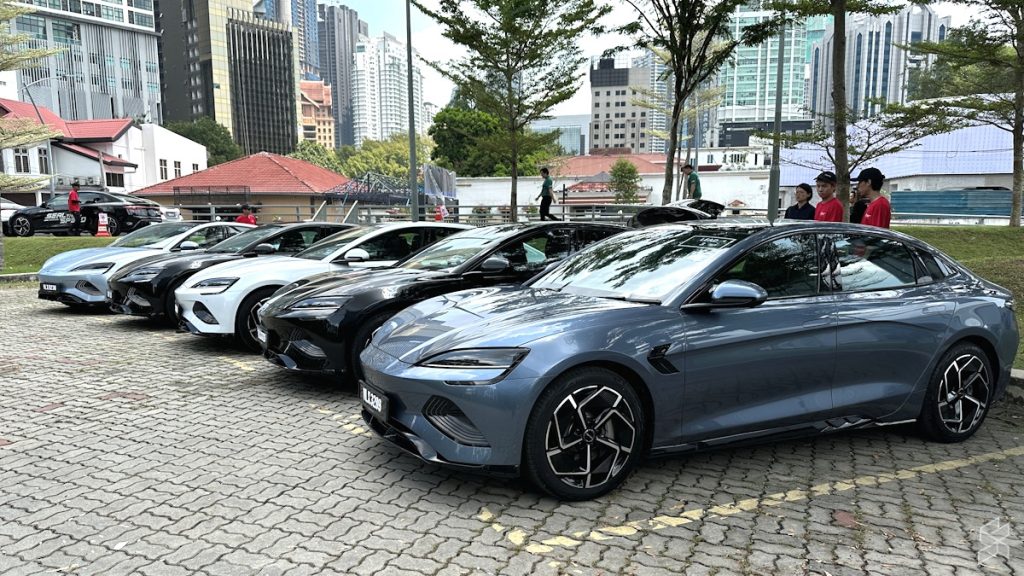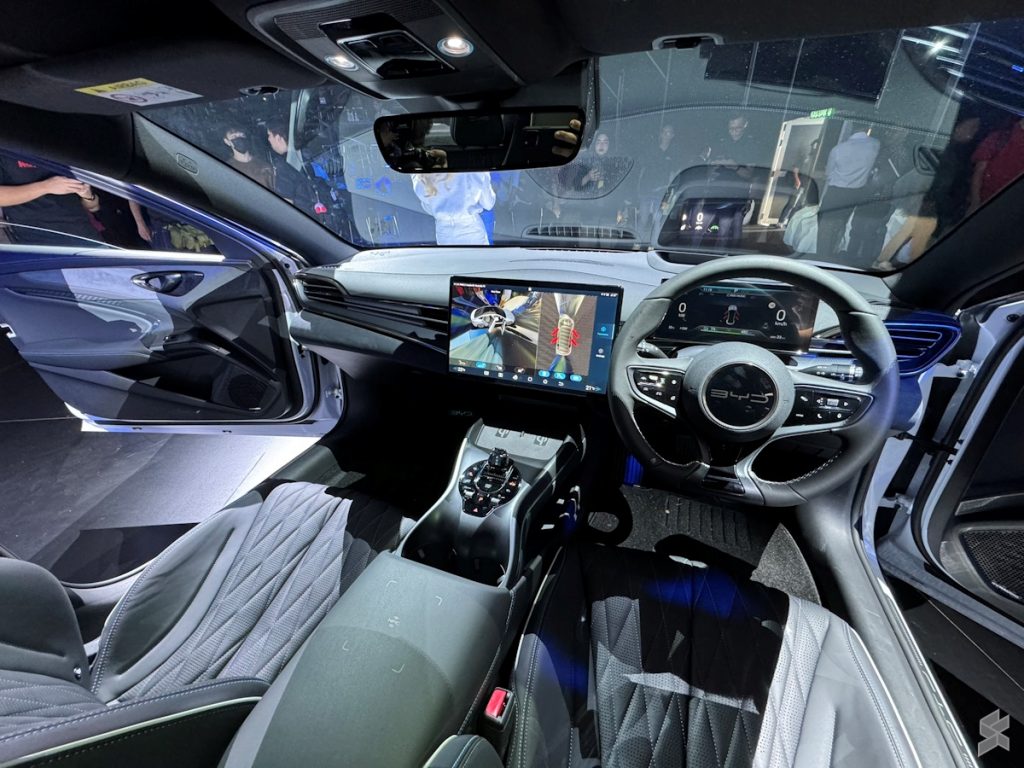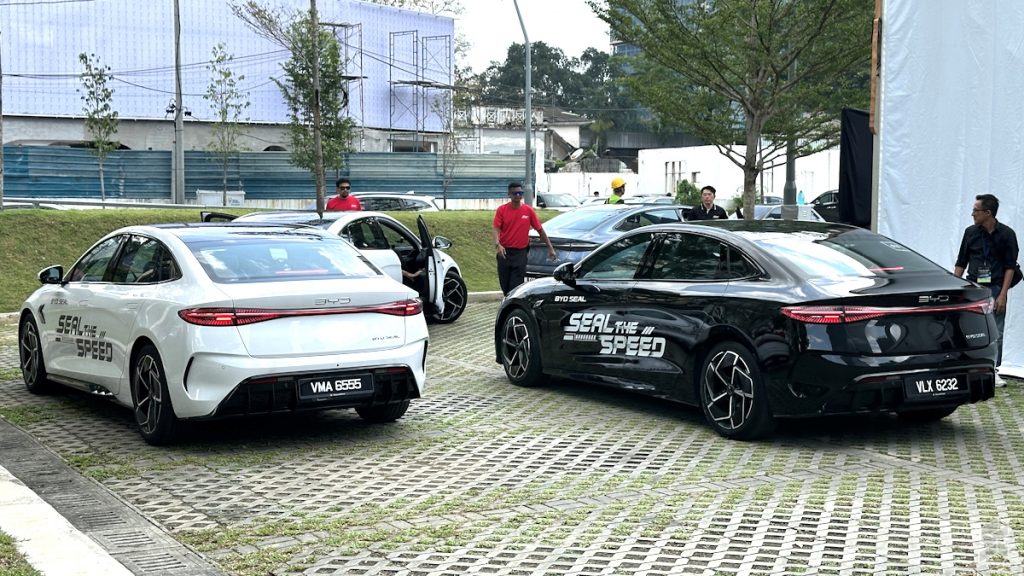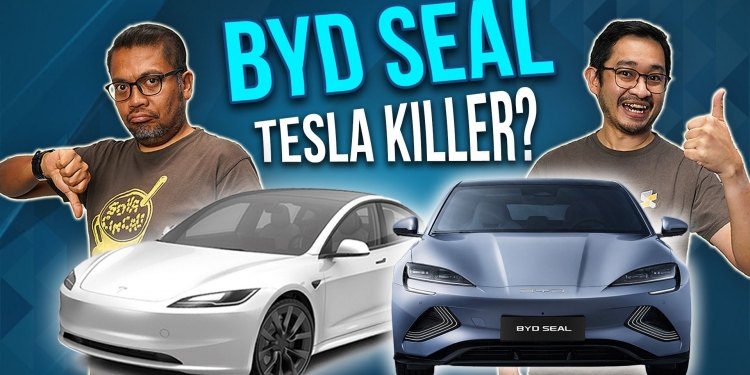When Tesla entered the Malaysian market, it disrupted the EV industry with its sub-RM200,000 starting price. Suddenly, all other EVs on the market look overpriced. Less than a year later, we now have the BYD Seal which offers even more performance at an even lower price. The BYD Seal Performance is currently the cheapest car in Malaysia to offer more than 500hp.
The question is, is the BYD Seal a Tesla Killer? In this episode of Let’s Talk About, Amin and Alex discuss the pros and cons of the BYD Seal, and how it compares with the Tesla Model 3. And if we have a RM200,000 budget for a new car, which EV would we pick?
BYD Seal Pricing and Features

The BYD Seal is a fully electric sedan which goes head-to-head with the Tesla Model 3. For Malaysia, we only get two variants – the BYD Seal Premium with a RWD setup and the BYD Seal Performance with a dual-motor All-wheel drive configuration.
The BYD Seal Premium has a single motor that pushes 308hp and 360Nm of torque, and it can get from 0-100km/h in 5.9 seconds. It has an 82.56kWh LFP battery that offers a WLTP-rated range of 570km on a single charge. At RM179,800, the Seal Premium is not only RM10,000 cheaper than the Tesla Model 3 RWD, but offers better performance and more range.
For those who want more performance, the BYD Seal Performance model with dual motor is officially priced at RM199,800. The AWD model boasts an impressive 523hp and 670Nm of torque, with a 0-100km/h time of 3.8 seconds. The Performance model also shares the same 82.56kWh battery as the Premium but its WLTP-rated range is shorter at 520km due to the added weight of the batteries. Besides the performance gains, the Seal Performance also gets Frequency Selective Dampening (FSD) for improved vehicle dynamics and handling.

Since the BYD Seal is a more premium product, it features a more upmarket-looking interior with a mixture of leatherette, suede and textured plastic materials. It gets a larger rotating 15.6″ infotainment display, a larger 10.25″ digital instrument cluster and it even has a Head-Up Display (HUD). Similar to the Tesla, it also gets a large panoramic glass roof which doesn’t come with a built-in sunshade There are also no manual levers for the aircon vents, so you’ll have to use the touch screen to adjust the wind direction for the aircon.
Unlike the Tesla, the Seal still offers a physical gear shifter in a crystal knob design as well as physical stalks for the signal indicator.

Whichever Seal you pick, both variants support DC fast charging up to 150kW which BYD claims can do 30-80% charge in just 18 minutes. However, similar to the Dolphin and Atto 3, the onboard charger for the Malaysian Seal is still a single-phase unit that supports a rather slow 7kW of AC charging. That means a full charge on AC charging may take about 15 hours. It will take even longer time to charge if it is plugged into a three-phase 11kW AC charge point.
In case you missed it, you can check out our BYD Seal Performance First Drive below:
Related reading
- Tesla Model Y Malaysia: EV game-changer or is it just hype? | Let’s Talk About #124
- BYD Dolphin: Finally, a proper EV for RM100K but where did they cut corners? | Let’s Talk About #125
- Did we get everything wrong about Tesla? We respond to Tesla Fans | Let’s Talk About #126
- What’s the deal with PADU? | Let’s Talk about #129








